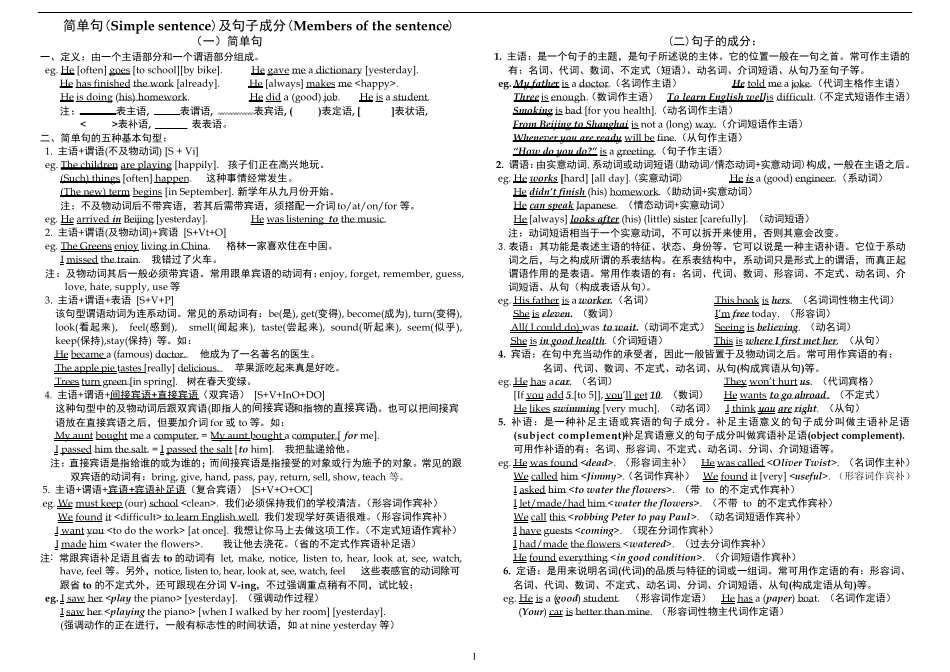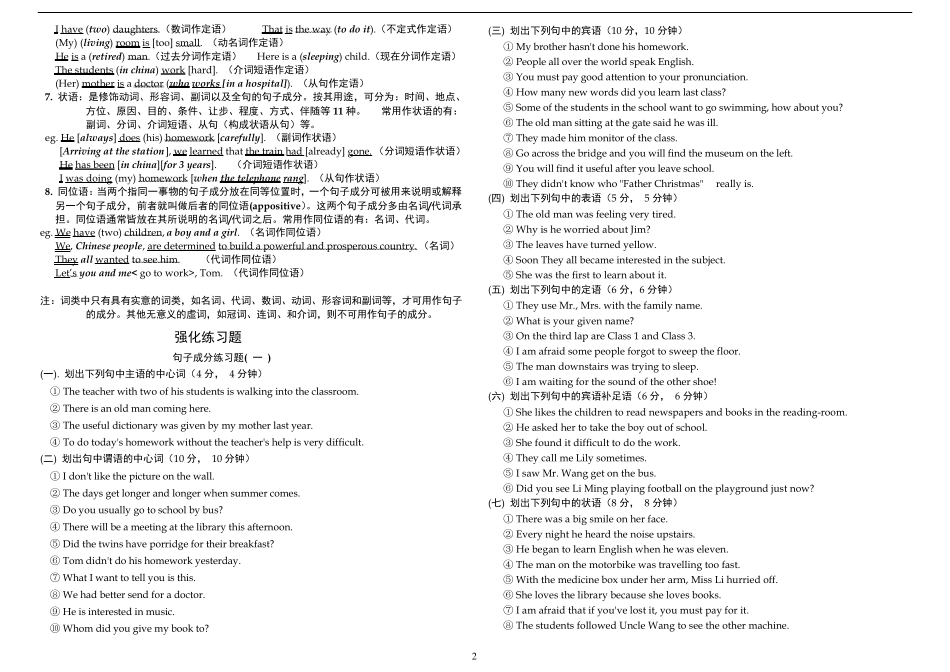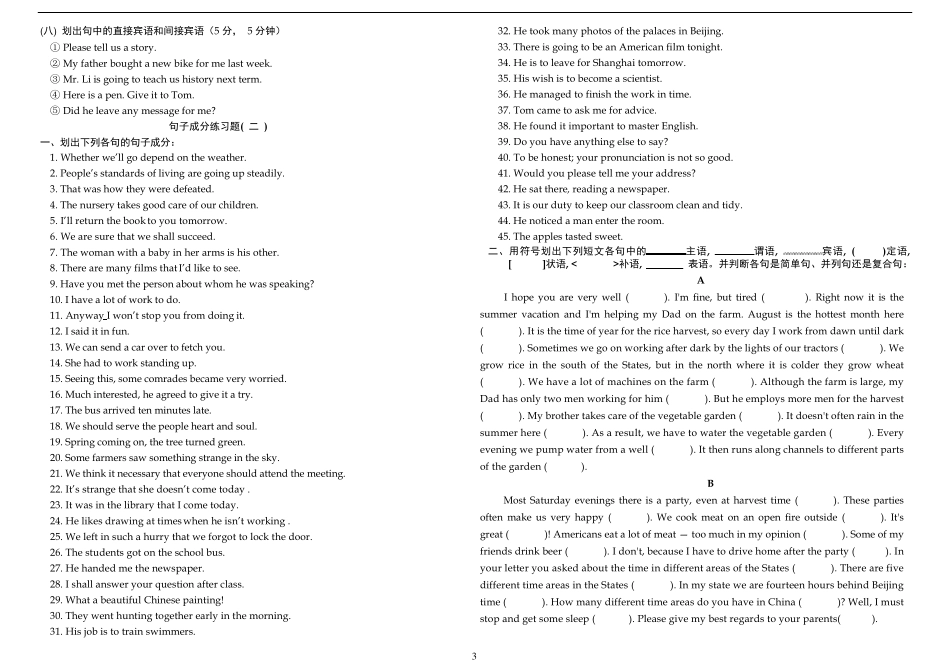1 简单句(Simple sentence)及句子成分(Members of the sentence) (一)简单句 一、定义:由一个主语部分和一个谓语部分组成。 eg. He [often] goes [to school][by bike]. He gave me a dictionary [yesterday]. He has finished the work [already]. He [always] makes me . He is doing (his) homework. He did a (good) job. He is a student. 注: 表主语, 表谓语, 表宾语, ( )表定语, [ ]表状语, < >表补语, 表表语。 二、简单句的五种基本句型: 1. 主语+谓语(不及物动词) [S + Vi] eg. The children are playing [happily]. 孩子们正在高兴地玩。 (Such) things [often] happen. 这种事情经常发生。 (The new) term begins [in September]. 新学年从九月份开始。 注:不及物动词后不带宾语,若其后需带宾语,须搭配一介词 to/at/on/for 等。 eg. He arrived in Beijing [yesterday]. He was listening to the music. 2. 主语+谓语(及物动词)+宾语 [S+Vt+O] eg. The Greens enjoy living in China. 格林一家喜欢住在中国。 I missed the train. 我错过了火车。 注:及物动词其后一般必须带宾语。常用跟单宾语的动词有:enjoy, forget, remember, guess, love, hate, supply, use 等 3. 主语+谓语+表语 [S+V+P] 该句型谓语动词为连系动词。常见的系动词有:be(是), get(变得), become(成为), turn(变得), look(看起来), feel(感到), smell(闻起来), taste(尝起来), sound(听起来), seem(似乎), keep(保持),stay(保持) 等。如: He became a (famous) doctor. 他成为了一名著名的医生。 The apple pie tastes [really] delicious. 苹果派吃起来真是好吃。 Trees turn green [in spring]. 树在春天变绿。 4. 主语+谓语+间接宾语+直接宾语(双宾语) [S+V+InO+DO] 这种句型中的及物动词后跟双宾语(即指人的间接宾语和指物的直接宾语)。也可以把间接宾 语放在直接宾语之后,但要加介词 for 或to 等。如: My aunt bought me a computer. = My aunt bought a computer [ for me]. I passed him the salt. = I passed the salt [to him]. 我把盐递给他。 注:直接宾语是指给谁的或为谁的;而间接宾语是指接受的对象或行为施予的对象。...


